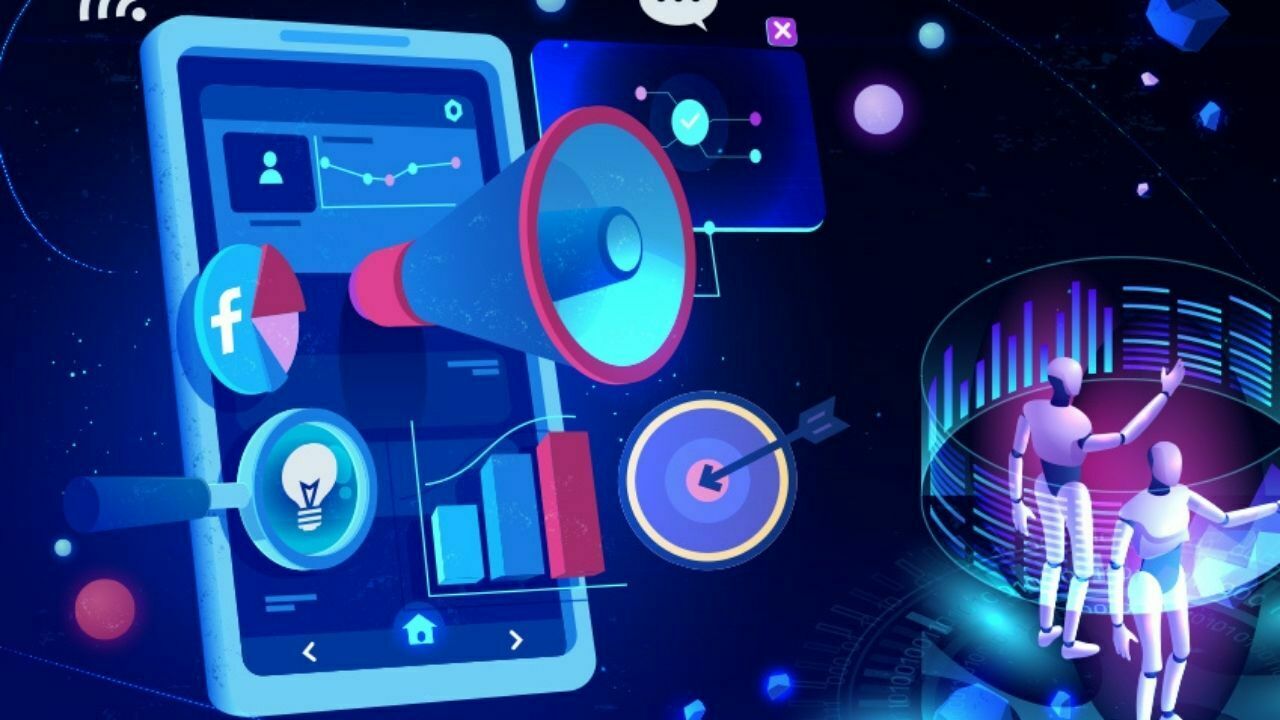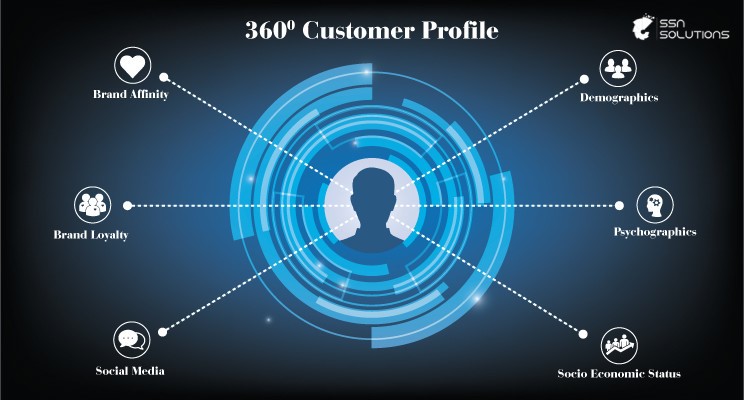
Today, I’m going to show five ways you can use artificial intelligence or AI in digital marketing. I believe that AI will have a large role to play in reducing the problems that marketers face today and will help them in increasing their revenues.
Let’s look at some of the applications of AI in digital marketing.
AI in Digital Marketing
So, if you have a click-through rate of 1%, it also means that 99% of the remaining audience have decided not to click on your ads for reasons known only to them.
This leads to high cost per acquisition and subsequently huge amounts of marketing losses for brands.
For example, the other day I posted one of my properties for sale on a website that aggregates real estate properties, and from that day onwards, the same site started displaying me ads on Facebook for buying my own property.
Poor quality leads are the greatest cause of the rift between the sales and marketing teams. You may be launching a digital campaign to reach out to adult working females, but may end up getting leads from students.
If there’s anything that annoys people more than seeing 50 display ads per day from one company, it is seeing the same ads after they’ve made a purchase, maybe somewhere else.
Most of the consumers are fed up with irrelevant content. I see foreign language ads on Facebook when I travel and get ads for categories that I don’t shop in.
So there are numerous other marketing problems that you may be dealing with.
However, with the help of artificial intelligence, you can think of overcoming those problems and increasing the productivity of your marketing space.
1. Content Marketing
One of the main areas where AI is used in marketing is content marketing. With AI copywriting tools, marketers can look forward to creating thousands of personalized, unique pieces of content in a fraction of the time it used to take.
Every piece of content is based on data-driven insights and tailored specifically for your audience so you are able to meet their needs whilst being consistent with your brand identity. The end result is content that will perform much better than the majority of content currently published online.
The best content marketers have mastered the art of knowing what their audience wants to read when they want it and how they prefer to receive it.
AI is now making this process much more efficient allowing publishers to tailor articles specifically to readers who are showing interest in particular topics or products that are being sold.
The implications here are significant for marketers in terms of personalization and how effective that strategy is for them.
2. Improving Targeting
The next use of AI in marketing is in improving your targeting. Using machine learning, you can reach out to the right audience at the right time and location.
Today, AI systems such as IBM’s Watson and Microsoft’s Azure can come through vast reams of data, such as:
- Email clicks
- Interests
- Age
- Location
- Website visited
- Shopping habits
- Conversations on social media
Customized algorithms are created, which automatically give scores to this audience and then suggest the most relevant audience for displaying your ads.
These insights can be used to create incredibly accurate 360-degree profiles of existing and future customers ensuring that you only target consumers who already have the propensity to buy from you.

3. Chatbots
Chatbots can be used for a variety of purposes. In marketing, it can be used to get excellent quality leads. Chatbots are hosted live on websites and powered by a virtual agent engine: Natural Language Processing or NLP, which can be lumped in with artificial intelligence.
It allows the chatbot application to understand human speech or text messages, including discerning intent. The chatbot is programmed to understand and respond to online queries and requests.
Chatbots can also collect presales, documents from prospects and gather hot leads.
4. Sentiment Analysis
In the simplest application, a sentiment analyzer will tell you if the opinion accessed by people about your brand or product is positive, negative, or neutral.
Did you know that you can customize a chatbot conversation to help the chatbot respond to a user sentiment?
This technique delivers a smarter and more human-like artificial intelligence, which can respond as per the emotions people show in a written chat conversation.
UX experts and developers can also use this tool and find out what products and features are missing the mark by analyzing negative emotions and product reviews.
Depending upon which machine learning model one uses, the efficiency of the analysis varies from 90 to 95%. For example, the deep forest decision tree model based on neural networks is the latest machine learning model and claims to have the highest accuracy in sentiment analysis.
5. Predictive Analysis
The fourth use of AI in digital marketing is its predictive analytics. The basic principle on which it works is that a customized system is set up, which collects and cleans data, identifies different patterns, and predicts the occurrences of unknown future events.
During campaigns, you can improve the quality of your leads through predictive analytics.
With predictive leads scoring, an algorithm is created considering different information such as lead field and behavioral data, social information, demographics, et cetera.
From there, the leads scoring algorithm comes up with a formula that will automatically bucket your leads so that you can easily identify the most qualified ones.
This will help you get much higher conversion rates and reduce your cost of client acquisition.
Predictive analytics is also used for customer segmentation and sending customized messages to each segment as per their behavioral traits.
The Bottom Line
Artificial intelligence is likely to become the biggest marketing trend of 2022. AI allows marketers to automate much of their day-to-day tasks, enabling them to work more efficiently and effectively by using AI and machine learning.
At the end, according to the SEO Tools Centre studies, the future of marketing is going to be heavily reliant on AI and we will see changes in how we approach content, launch marketing campaigns, and manage our social media channels.
Read More: Artificial Intelligence Technologies Trending In 2021





